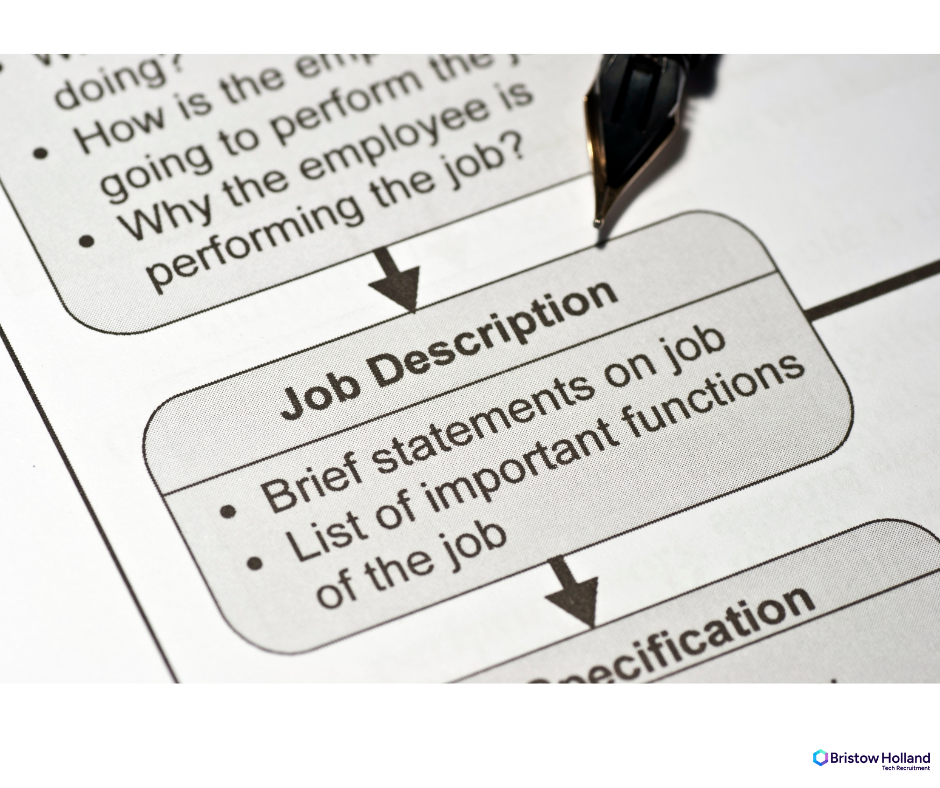What to Put for Salary Expectations: Key Factors and Strategies
Discover effective strategies on what to put for salary expectations in your job applications.
Overview
Salary expectations must be grounded in individual experience, industry standards, and geographical factors. This approach empowers applicants to present informed and flexible compensation ranges during negotiations. By conducting thorough market research and employing effective communication strategies, candidates can significantly enhance their bargaining power. This leads to more favourable outcomes in a competitive job market, demonstrating the importance of preparation and insight in the negotiation process.
Introduction
Understanding salary expectations is not just a detail; it is a pivotal element of the job application process that influences both candidates and employers in today’s competitive landscape. As the demand for skilled professionals escalates, the ability to effectively communicate and negotiate salary can dramatically shape recruitment outcomes. Yet, with numerous factors at play—such as industry standards and individual experience—how can applicants confidently and accurately present their expectations? This article explores proven strategies and critical considerations for determining and discussing salary expectations, empowering candidates to advocate for their worth while aligning with market realities.
Define Salary Expectations: Importance and Relevance
Applicants often consider what to put for salary expectations based on the anticipated remuneration they believe they should receive for specific positions, shaped by their skills, experience, and prevailing market conditions. Understanding what to put for salary expectations is crucial for both applicants and employers. For applicants, it facilitates discussions around equitable remuneration that accurately reflects their value. For employers, it aids in aligning their budget with the talent they aim to attract. In today’s competitive job market, where skilled IT professionals are increasingly sought after, a clear understanding of compensation ranges can significantly enhance recruitment success.
Consider this: 57% of employers inquire about what to put for salary expectations during the hiring process, which underscores the importance of this topic. With pay increases projected to remain around 6% to 7% in 2024, candidates are encouraged to advocate confidently for their worth. This is especially pertinent as compensation has emerged as a primary motivator for job changes, overtaking previous factors such as flexibility. This shift highlights the necessity for both parties to engage in informed discussions about compensation, which ultimately impacts job arrangements and recruitment outcomes.
Moreover, the average cost-per-hire stands at $4,900, illustrating the financial implications of recruitment and the critical need to align compensation requirements with budget constraints. Recruiters can also play a pivotal role, often negotiating compensation that is 20% to 25% higher than candidates initially anticipated, thus providing valuable support in these discussions. Given the current economic pressures, including soaring living costs and rising interest rates, the urgency of these conversations is more pronounced than ever.
Explore Influencing Factors: Industry Standards and Personal Experience
Salary expectations in the IT sector are influenced by several critical factors, including industry standards, individual experience, education, and geographical location. As we look toward 2025, the average compensation for tech roles in the UK is projected to be approximately £62,500, with specific benchmarks for in-demand positions. For example:
- Senior data analysts can expect earnings ranging from £47,000 to £70,000.
- Mid-level cybersecurity professionals generally earn between £50,000 and £75,000.
- Mid-level software engineers also receive between £50,000 and £75,000.
- DevOps engineers can anticipate earnings from £60,000 to £77,500.
In sought-after fields such as cybersecurity and data analytics, individuals often have heightened salary expectations due to the limited pool of qualified professionals. Personal experience—encompassing years in the industry and specialised skills—plays a significant role in shaping these expectations. Furthermore, the cost of living in an applicant’s area is a crucial factor that influences what is considered a competitive wage.
To navigate compensation discussions effectively, applicants should research what to put for salary expectations based on pay standards for comparable positions. This can be achieved through various methods, including:
- Employer compensation surveys
- Data-sharing networks
- Professional networking websites
Such an approach not only provides a practical pay range but also empowers applicants to advocate for equitable remuneration based on market data. By understanding these influencing factors, candidates can better determine what to put for salary expectations while aligning their aspirations with industry norms, ultimately enhancing their bargaining strategies.
Communicate Salary Expectations: Strategies for Effective Presentation
Successfully conveying what to put for salary expectations requires a tactical approach. Applicants should think about what to put for salary expectations by presenting a compensation range instead of a fixed amount, allowing for flexibility during negotiations. This range must be informed by comprehensive market research, taking into account industry standards and individual qualifications.
With 73% of employers anticipating compensation discussions, candidates can leverage this expectation by articulating the rationale behind their proposed range, such as relevant experience or specialised skills. Furthermore, with 70% of employers integrating voluntary benefits into their offers, applicants must be prepared to negotiate these aspects as well.
Practising responses and preparing to discuss the unique value they bring to the organisation can significantly enhance confidence during these discussions. It’s important to recognise that nearly 66% of workers who negotiate their starting pay report success, and 78% of new hires who engaged in negotiations received a better offer, underscoring the potential benefits of assertive communication.
Ultimately, knowing what to put for salary expectations in a clear and confident manner can lead to more favourable negotiation outcomes, ensuring candidates secure remuneration that accurately reflects their worth in the competitive technology sector. Research indicates that individuals who negotiate their salaries could earn over $1 million more in their lifetime compared to those who do not.
Conclusion
Effectively communicating salary expectations is essential for both job seekers and employers. Articulating a well-researched compensation range not only demonstrates the applicant’s self-awareness but also aligns their aspirations with market realities. This clarity paves the way for productive discussions that benefit both parties, ultimately leading to successful recruitment outcomes.
Key factors influencing salary expectations include:
- Industry standards
- Individual experience
- Geographical considerations
For instance, the IT sector has specific benchmarks that applicants must consider when determining their worth. By researching and leveraging data from compensation surveys and professional networks, candidates can present informed salary expectations that resonate with employers, ensuring their qualifications and market value are accurately represented.
In today’s competitive job landscape, candidates must advocate for themselves with confidence. Engaging in negotiations can yield significant long-term financial benefits, underscoring the importance of understanding and communicating salary expectations effectively. By approaching these discussions with thorough preparation and strategic insight, individuals can secure remuneration that reflects their true value in the workforce, driving personal success while contributing to a more equitable job market.
Frequently Asked Questions
Why is it important to define salary expectations during the hiring process?
Defining salary expectations is crucial as it facilitates discussions around equitable remuneration that reflects an applicant’s value and helps employers align their budget with the talent they wish to attract.
What factors influence an applicant’s salary expectations?
An applicant’s salary expectations are influenced by their skills, experience, and prevailing market conditions.
What percentage of employers ask about salary expectations during hiring?
57% of employers inquire about salary expectations during the hiring process.
How have recent trends affected salary negotiations?
Compensation has become a primary motivator for job changes, surpassing previous factors like flexibility, making informed discussions about salary more essential.
What is the projected pay increase for 2024?
Pay increases are projected to remain around 6% to 7% in 2024.
What is the average cost-per-hire for employers?
The average cost-per-hire stands at $4,900.
How can recruiters assist in salary negotiations?
Recruiters can negotiate compensation that is often 20% to 25% higher than candidates initially anticipated, providing valuable support in discussions about salary.
Why is there an increased urgency to discuss salary expectations currently?
The urgency is heightened due to economic pressures such as soaring living costs and rising interest rates, making it critical for both parties to engage in conversations about compensation.
{“@context”: “https://schema.org”, “@type”: “FAQPage”, “mainEntity”: [{“@type”: “Question”, “name”: “Why is it important to define salary expectations during the hiring process?”, “acceptedAnswer”: {“@type”: “Answer”, “text”: “Defining salary expectations is crucial as it facilitates discussions around equitable remuneration that reflects an applicant’s value and helps employers align their budget with the talent they wish to attract.”}}, {“@type”: “Question”, “name”: “What factors influence an applicant’s salary expectations?”, “acceptedAnswer”: {“@type”: “Answer”, “text”: “An applicant’s salary expectations are influenced by their skills, experience, and prevailing market conditions.”}}, {“@type”: “Question”, “name”: “What percentage of employers ask about salary expectations during hiring?”, “acceptedAnswer”: {“@type”: “Answer”, “text”: “57% of employers inquire about salary expectations during the hiring process.”}}, {“@type”: “Question”, “name”: “How have recent trends affected salary negotiations?”, “acceptedAnswer”: {“@type”: “Answer”, “text”: “Compensation has become a primary motivator for job changes, surpassing previous factors like flexibility, making informed discussions about salary more essential.”}}, {“@type”: “Question”, “name”: “What is the projected pay increase for 2024?”, “acceptedAnswer”: {“@type”: “Answer”, “text”: “Pay increases are projected to remain around 6% to 7% in 2024.”}}, {“@type”: “Question”, “name”: “What is the average cost-per-hire for employers?”, “acceptedAnswer”: {“@type”: “Answer”, “text”: “The average cost-per-hire stands at $4,900.”}}, {“@type”: “Question”, “name”: “How can recruiters assist in salary negotiations?”, “acceptedAnswer”: {“@type”: “Answer”, “text”: “Recruiters can negotiate compensation that is often 20% to 25% higher than candidates initially anticipated, providing valuable support in discussions about salary.”}}, {“@type”: “Question”, “name”: “Why is there an increased urgency to discuss salary expectations currently?”, “acceptedAnswer”: {“@type”: “Answer”, “text”: “The urgency is heightened due to economic pressures such as soaring living costs and rising interest rates, making it critical for both parties to engage in conversations about compensation.”}}]}{“@context”: “https://schema.org”, “@type”: “BlogPosting”, “headline”: “What to Put for Salary Expectations: Key Factors and Strategies”, “description”: “Discover effective strategies on what to put for salary expectations in your job applications.”, “datePublished”: “2025-07-24T00:00:06.247000”, “image”: [], “articleBody”: “## Overview\nSalary expectations must be grounded in individual experience, industry standards, and geographical factors. This approach empowers applicants to present informed and flexible compensation ranges during negotiations. By conducting thorough market research and employing effective communication strategies, candidates can significantly enhance their bargaining power. This leads to more favourable outcomes in a competitive job market, demonstrating the importance of preparation and insight in the negotiation process.\n\n## Introduction\nUnderstanding salary expectations is not just a detail; it is a pivotal element of the job application process that influences both candidates and employers in today\u2019s competitive landscape. As the demand for skilled professionals escalates, the ability to effectively communicate and negotiate salary can dramatically shape recruitment outcomes. Yet, with numerous factors at play\u2014such as industry standards and individual experience\u2014how can applicants confidently and accurately present their expectations? This article explores proven strategies and critical considerations for determining and discussing salary expectations, empowering candidates to advocate for their worth while aligning with market realities.\n\n## Define Salary Expectations: Importance and Relevance\nApplicants often consider what to put for salary expectations based on the anticipated remuneration they believe they should receive for specific positions, shaped by their skills, experience, and prevailing market conditions. Understanding what to put for salary expectations is crucial for both applicants and employers. For applicants, it facilitates discussions around equitable remuneration that accurately reflects their value. For employers, it aids in aligning their budget with the talent they aim to attract. In today\u2019s competitive job market, where skilled IT professionals are increasingly sought after, a clear understanding of compensation ranges can significantly enhance recruitment success. \n\nConsider this: 57% of employers inquire about what to put for salary expectations during the hiring process, which underscores the importance of this topic. With [pay increases projected](https://ashdowngroup.com/how-will-falling-inflation-affect-salary-negotiations-in-2024) to remain around 6% to 7% in 2024, candidates are encouraged to advocate confidently for their worth. This is especially pertinent as compensation has emerged as a primary motivator for job changes, overtaking previous factors such as flexibility. This shift highlights the necessity for both parties to engage in informed discussions about compensation, which ultimately impacts job arrangements and recruitment outcomes. \n\nMoreover, the average cost-per-hire stands at $4,900, illustrating the financial implications of recruitment and the critical need to align compensation requirements with budget constraints. Recruiters can also play a pivotal role, often negotiating compensation that is 20% to 25% higher than candidates initially anticipated, thus providing valuable support in these discussions. Given the current economic pressures, including soaring living costs and rising interest rates, the urgency of these conversations is more pronounced than ever.\n## Explore Influencing Factors: Industry Standards and Personal Experience\nSalary expectations in the IT sector are influenced by several critical factors, including industry standards, individual experience, education, and geographical location. As we look toward 2025, the average compensation for tech roles in the UK is projected to be approximately \u00a362,500, with specific benchmarks for in-demand positions. For example:\n\n1. Senior data analysts can expect earnings ranging from \u00a347,000 to \u00a370,000.\n2. Mid-level cybersecurity professionals generally earn between \u00a350,000 and \u00a375,000.\n3. Mid-level software engineers also receive between \u00a350,000 and \u00a375,000.\n4. DevOps engineers can anticipate earnings from \u00a360,000 to \u00a377,500.\n\nIn sought-after fields such as cybersecurity and data analytics, individuals often have heightened salary expectations due to the limited pool of qualified professionals. Personal experience\u2014encompassing years in the industry and specialised skills\u2014plays a significant role in shaping these expectations. Furthermore, the cost of living in an applicant’s area is a crucial factor that influences what is considered a competitive wage.\n\nTo navigate compensation discussions effectively, applicants should research what to put for [salary expectations](https://indeed.com/career-advice/pay-salary/salary-benchmarks) based on pay standards for comparable positions. This can be achieved through various methods, including:\n\n- Employer compensation surveys\n- Data-sharing networks\n- Professional networking websites\n\nSuch an approach not only provides a practical pay range but also empowers applicants to advocate for equitable remuneration based on market data. By understanding these influencing factors, candidates can better determine what to put for salary expectations while aligning their aspirations with industry norms, ultimately enhancing their bargaining strategies.\n## Communicate Salary Expectations: Strategies for Effective Presentation\nSuccessfully conveying what to put for salary expectations requires a tactical approach. Applicants should think about what to put for salary expectations by presenting a compensation range instead of a fixed amount, allowing for flexibility during negotiations. This range must be informed by comprehensive market research, taking into account industry standards and individual qualifications. \n\nWith 73% of employers anticipating [compensation discussions](https://procurementtactics.com/salary-negotiation-statistics), candidates can leverage this expectation by articulating the rationale behind their proposed range, such as relevant experience or specialised skills. Furthermore, with 70% of employers integrating voluntary benefits into their offers, applicants must be prepared to negotiate these aspects as well. \n\nPractising responses and preparing to discuss the unique value they bring to the organisation can significantly enhance confidence during these discussions. It’s important to recognise that nearly 66% of workers who negotiate their starting pay report success, and 78% of new hires who engaged in negotiations received a better offer, underscoring the potential benefits of assertive communication. \n\nUltimately, knowing what to put for salary expectations in a clear and confident manner can lead to more favourable negotiation outcomes, ensuring candidates secure remuneration that accurately reflects their worth in the competitive technology sector. Research indicates that individuals who negotiate their salaries could earn over $1 million more in their lifetime compared to those who do not.\n\n## Conclusion\nEffectively communicating salary expectations is essential for both job seekers and employers. Articulating a well-researched compensation range not only demonstrates the applicant’s self-awareness but also aligns their aspirations with market realities. This clarity paves the way for productive discussions that benefit both parties, ultimately leading to successful recruitment outcomes.\n\nKey factors influencing salary expectations include:\n\n- Industry standards\n- Individual experience\n- Geographical considerations\n\nFor instance, the IT sector has specific benchmarks that applicants must consider when determining their worth. By researching and leveraging data from compensation surveys and professional networks, candidates can present informed salary expectations that resonate with employers, ensuring their qualifications and market value are accurately represented.\n\nIn today’s competitive job landscape, candidates must advocate for themselves with confidence. Engaging in negotiations can yield significant long-term financial benefits, underscoring the importance of understanding and communicating salary expectations effectively. By approaching these discussions with thorough preparation and strategic insight, individuals can secure remuneration that reflects their true value in the workforce, driving personal success while contributing to a more equitable job market.\n\n::iframe[https://iframe.tely.ai/cta/eyJhcnRpY2xlX2lkIjogIjY4ODE3Nzg2MzdmNmFmZjY2MDA1NmI4YSIsICJjb21wYW55X2lkIjogIjY3ZTQxYWY2NTQyMzA3MjhlNDk1MzBlYSIsICJpbmRleCI6IG51bGwsICJ0eXBlIjogImFydGljbGUifQ==]{width=\”100%\” height=\”300px\”}”}










